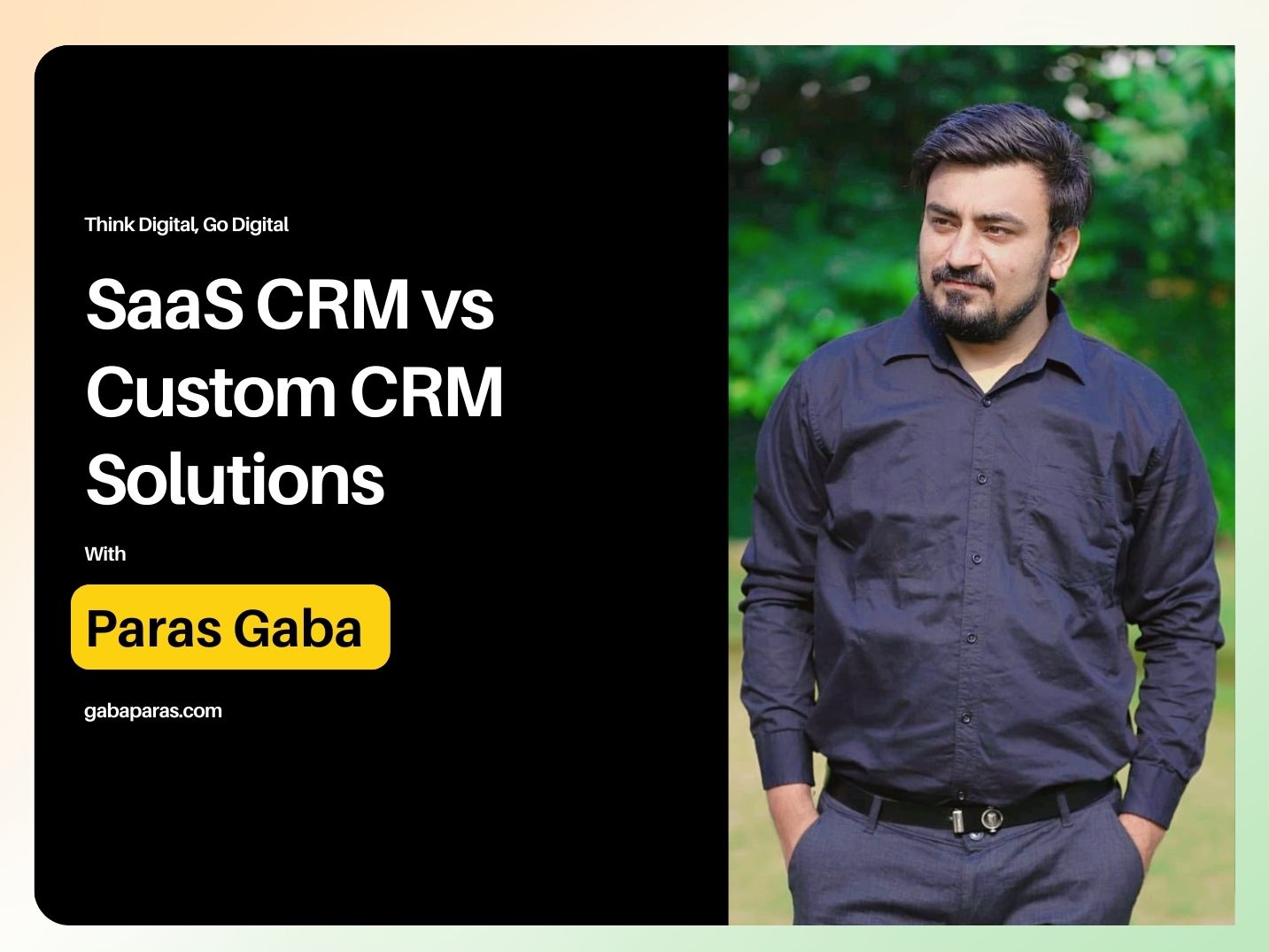Hey there! As an IT consultant, I Paras Gaba with a passion for simplifying the complex, I’m here to shed light on a topic that often bewilders businesses: the choice between SaaS CRM vs. Custom CRM Solutions.
In this digital age, managing customer relationships efficiently is non-negotiable, but the approach you take can make all the difference. Today, I’ll be your guide in exploring the world of CRM systems, focusing on why a Custom CRM might just be the ace up your sleeve.
Understanding the Basics: SaaS CRM and Custom CRM
Before diving into the details, let’s establish a solid foundation. SaaS CRM, also known as cloud-based CRM, is a system hosted by a third-party provider and accessed via the Internet. It offers a convenient, ready-to-use solution with features designed to fit the general needs of various businesses.
On the other hand, Custom CRM is tailored to your organization’s specific requirements, providing a unique set of features and functionalities that align perfectly with your processes.
The Appeal of SaaS CRM
SaaS CRM solutions come with undeniable perks. They’re quick to implement, requiring minimal setup time and IT resources. The subscription-based model also spreads out the costs over time, making it budget-friendly, especially for small businesses.
Maintenance and updates are managed by the provider, lifting a significant burden off your IT team’s shoulders. Plus, accessibility from anywhere with an internet connection ensures your team stays productive on the go.
Unleashing the Potential of Custom CRM
Now, let’s zoom in on the real star of the show: Custom CRM. Picture this: a CRM system that’s designed to mirror your unique business processes like a reflection in a mirror.
Unlike SaaS solutions that offer a one-size-fits-all approach, a Custom CRM is a tailor-made suit that fits your organization like a glove. Here’s why it might be the superior choice:
- Process Alignment: Your business is as unique as your fingerprint, so why settle for a generic solution? Custom CRM moulds itself around your processes, not the other way around. This alignment streamlines workflows minimizes learning curves, and boosts overall efficiency.
- Feature Precision: With a Custom CRM, you’re in control of what features are included. No unnecessary clutter, no missing functionalities. This precision keeps your team focused on what truly matters.
- Scalability: As your business evolves, so do your needs. Custom CRMs are engineered to scale seamlessly, accommodating new processes and growing data volumes without breaking a sweat.
- Data Security and Ownership: Custom CRM solutions often offer higher levels of data security, crucial in today’s world of increasing cyber threats. You also retain complete ownership of your data, reducing potential risks associated with third-party data handling.
- Competitive Edge: A tailor-made CRM can become a competitive advantage. By optimizing processes, fostering better customer relationships, and enabling data-driven insights, you position yourself as an industry leader.
Making the Decision
So, how do you decide? It comes down to a balance between immediate convenience and long-term effectiveness. If you’re a small business with limited resources seeking a quick-start solution, SaaS CRM might be appealing.
However, if you’re in it for the long haul and value the immense potential of process alignment, feature precision, scalability, data security, and that all-important competitive edge, Custom CRM is the path to explore.
Conclusion
In the ever-evolving landscape of CRM systems, the SaaS vs. Custom debate remains relevant. Both options have their merits, but for those aiming to truly revolutionize their customer management strategies, Custom CRM emerges as the champion.
The investment in time and resources is well worth the returns in efficiency, growth, and innovation. Remember, your CRM isn’t just a tool – it’s the backbone of your customer-centric operations.
Here’s to making informed choices and embracing the power of customization in the digital age!
Stay tech-savvy & connected with me, on LinkedIn



